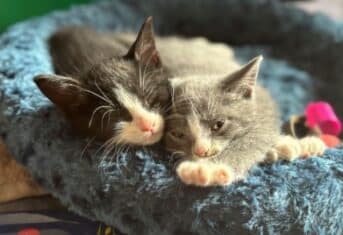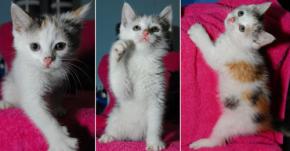Q&A on SiriusXM Radio

Q&A on SiriusXM Radio
Last week was somewhat of a personal record for me. I appeared on three different radio programs on SiriusXM in a single week. On Tuesday with my good friend Dr. Frank Adams on “Doctor Radio” (channel 110) powered by NYU Langone Medical Center, on Thursday night with “Just Jenny” on SiriusXM Stars (channel 109) and then on my own show, “Ask the Vet,” which is also on SiriusXM Stars.
The callers asked very interesting and important medical questions, many of which I have written about here previously. In case you missed the radio programs, I will recap them here.
Thyroid Disease
The caller explained her dog had an overactive thyroid gland, a very uncommon occurrence. Typically, dogs have an underactive thyroid gland (hypothyroidism) and cats have an overactive thyroid gland (hyperthyroidism).
Feline Infectious Peritonitis (FIP)
I always grit my teeth when a caller asks about this feline disease. FIP is pretty much always fatal, and because cat lovers usually have multiple kitties, a cat with FIP poses a risk to the healthy cats in the family. Not only has the family lost a cat to FIP, but they are now distraught over the health of their other cats.
Behavior
Whenever I am interviewed on a call-in program, I can be sure to have questions on behavior primarily relating to normal, destructive, or bad behaviors in pets. Recently, Dr. Jean DeNapoli of Pieper Memorial Veterinary Center in Middletown, CT, spoke at a Usdan Institute for Animal Health Education event at AMC. Dr. DeNapoli completed a behavior residency and shared useful information about pet behavior with pet owners in attendance. View a video of her presentation.
Bladder Stones
Two callers asked about bladder stones. In both the dog and cat, calcium oxalate stones are the most common type of bladder stone, but struvite or triple phosphate is a close second. Veterinarians have a variety of methods to treat bladder stones. The type of stone often dictates the best treatment.
Feeding Cats
A cat owning caller was concerned about her cat’s passion for dry food and lack of interest in wet food. Cat’s taste preferences are set during kittenhood and some cats just want what they want and nothing else. Read more about cats and food in this post from Adopt-a-Cat Month 2011.
Have a question that was not answered here? Follow us on Twitter @amcny to learn when AMC expert veterinarians will be speaking in public or tune in to SiriusXM Stars 109 for “Ask the Vet” which airs the first Friday of every month from 1-2 pm ET and call 888-94-STARS (888-947-8277) to ask your pet health questions.

































